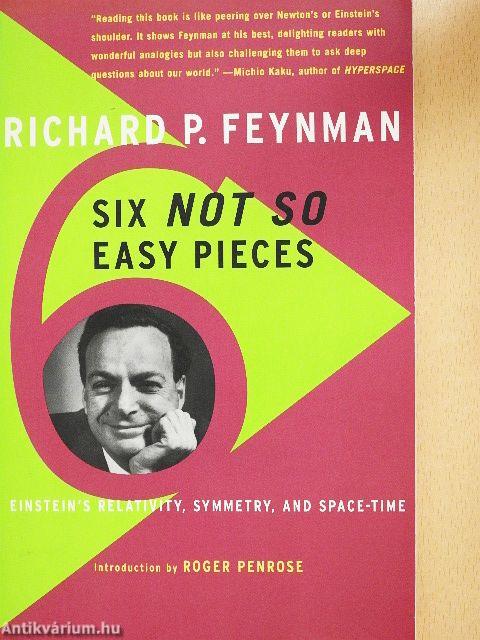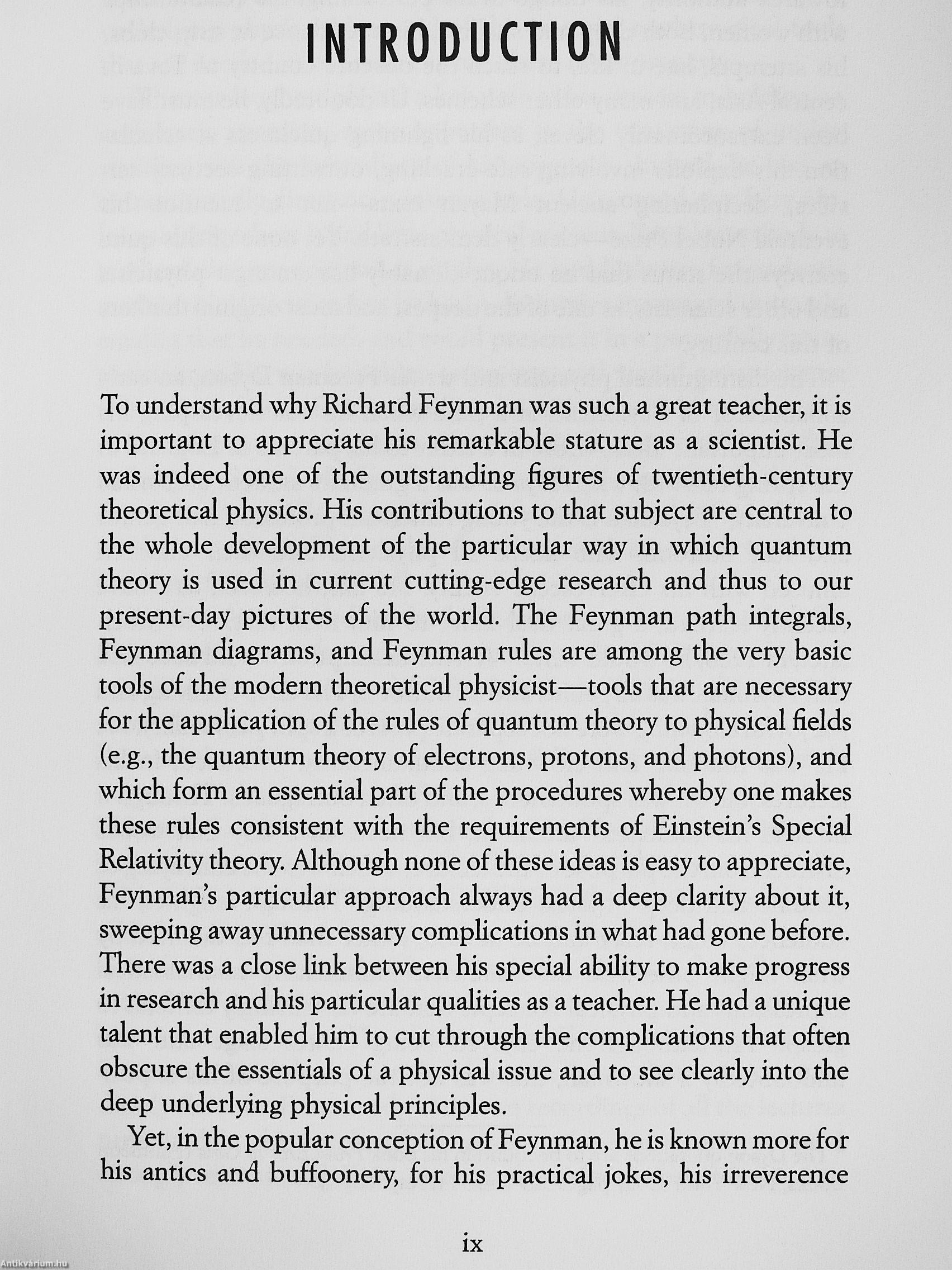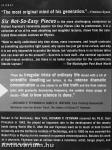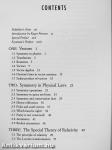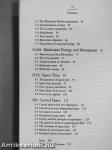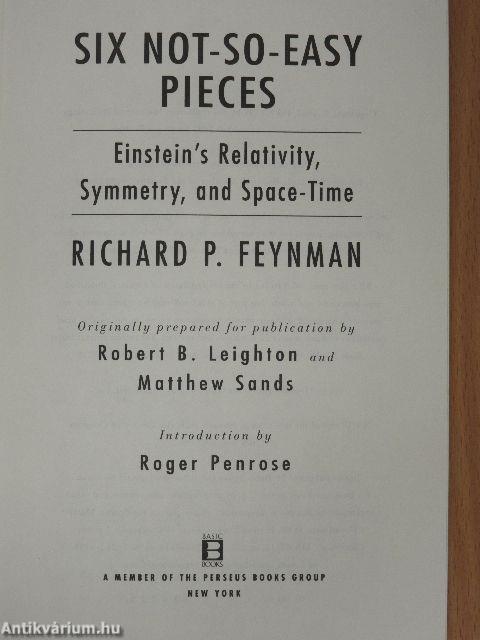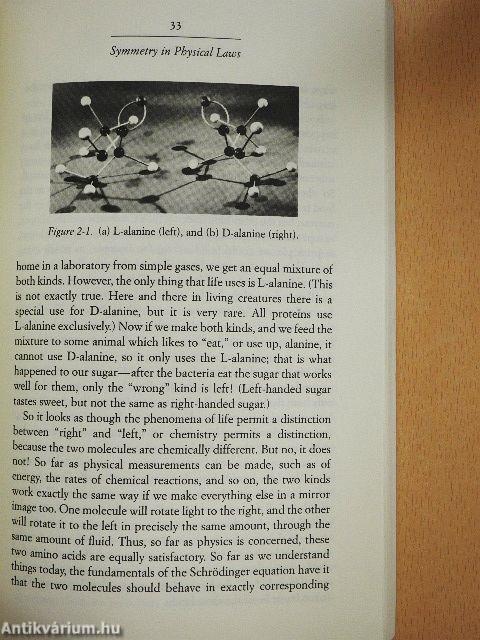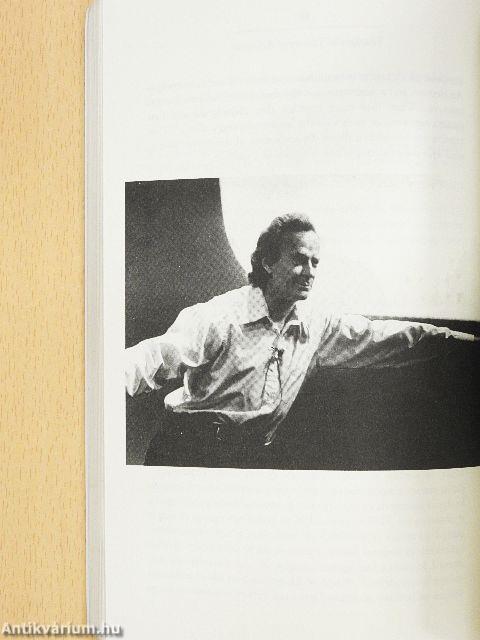1.103.957
kiadvánnyal nyújtjuk Magyarország legnagyobb antikvár könyv-kínálatát

VISSZA
A TETEJÉRE
JAVASLATOKÉszre-
vételek
Six Not-So-Easy Pieces
Einstein's Relativity, Symmetry, and Space-Time
| Kiadó: | Basic Books |
|---|---|
| Kiadás helye: | New York |
| Kiadás éve: | |
| Kötés típusa: | Ragasztott papírkötés |
| Oldalszám: | 152 oldal |
| Sorozatcím: | |
| Kötetszám: | |
| Nyelv: | Angol |
| Méret: | 21 cm x 14 cm |
| ISBN: | 0-465-02393-2 |
| Megjegyzés: | Fekete-fehér fotókkal, ábrákkal. |
naponta értesítjük a beérkező friss
kiadványokról
naponta értesítjük a beérkező friss
kiadványokról
Előszó
TovábbFülszöveg
SCIENCE
"The most original mind of his generation."—Freeman Dyson Six Not-So-Easy Pieces is the more challenging companion to
Richard Feynman's immensely popular Six Easy Pieces. Like its predecessor, it is a collection of six of his most absorbing and insightful lectures, drawn from the celebrated three-volume Lectures on Physics.
"Want to really understand why time slows, mass increases, and length contracts as something approaches light speed, why space has just got to be curved, and why it is not only impossible to predict the future, but 'actually there is no fortune teller who can even tell us the present?' Sure this is hard stuff—the cerebral equivalent of high-impact aerobics but there is no better explanation for the scientifically literate layman." —The Washington Post Book World
"From the Irregular trivia of ordinary life mixed with a bit of, scientific doodling and failure, to the intense dramatic^ concentration as one closes in on the truth and the final elation... Tovább
Fülszöveg
SCIENCE
"The most original mind of his generation."—Freeman Dyson Six Not-So-Easy Pieces is the more challenging companion to
Richard Feynman's immensely popular Six Easy Pieces. Like its predecessor, it is a collection of six of his most absorbing and insightful lectures, drawn from the celebrated three-volume Lectures on Physics.
"Want to really understand why time slows, mass increases, and length contracts as something approaches light speed, why space has just got to be curved, and why it is not only impossible to predict the future, but 'actually there is no fortune teller who can even tell us the present?' Sure this is hard stuff—the cerebral equivalent of high-impact aerobics but there is no better explanation for the scientifically literate layman." —The Washington Post Book World
"From the Irregular trivia of ordinary life mixed with a bit of, scientific doodling and failure, to the intense dramatic^ concentration as one closes in on the truth and the final elation (plus with gradually decreasing frequency, the sudden sharp pangs of
doubt)—that is how science is done."
—RICHARD P. FEYNMAN to JAMES D. WATSON, from Perfectly Reasonable Deviations from the Beaten Track: The Letters of Richard P. Feynman
m
Raised in Far Rockaway, New York, RICHARD P. FEYNMAN received his Ph.D. from Princeton in 1942. He played an important role in the development of the atomic bomb during World War II. After the war Feynman went on to teach at both Cornell University and the California Institute of Technology, and in 1965 he was awarded the Nobel Prize in Physics for his research in quantum electrodynamics. Besides his work as a physicist, Feynman was at various times a raconteur, artist, bongo player, and safecracker. He died in 1988. Vissza
Richard P. Feynman
Richard P. Feynman műveinek az Antikvarium.hu-n kapható vagy előjegyezhető listáját itt tekintheti meg: Richard P. Feynman könyvek, művekMegvásárolható példányok
Nincs megvásárolható példány
A könyv összes megrendelhető példánya elfogyott. Ha kívánja, előjegyezheti a könyvet, és amint a könyv egy újabb példánya elérhető lesz, értesítjük.



